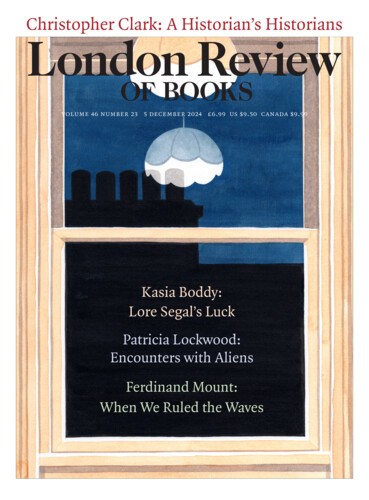In Camden
Inigo Thomas, 5 December 2024
The central staircase at Camden Town Hall is made of white marble from Carrara and is more lustrous than any marble staircase you’re likely to see in Rome. The building was designed for the Borough of St Pancras by Albert Thomas, a disciple of Lutyens, and opened in 1937 as St Pancras Town Hall. Twenty-eight years later, the borough was one of three – along with Holborn and


